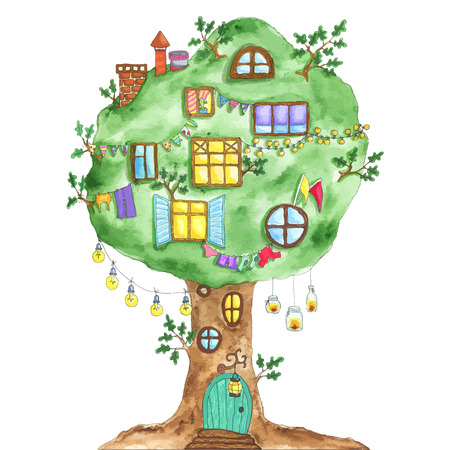1. Understanding Feng Shui Principles in the UK Context
Imagine stepping into a British garden where the gentle whisper of the wind is met by the soft rustle of leaves and the distant call of a blackbird. Here, ancient Feng Shui principles—rooted in balance, harmony, and the careful flow of energy—can be thoughtfully woven into the very fabric of outdoor living. While Feng Shui originated under Eastern skies, its core values resonate with the British love for order, natural beauty, and quiet sanctuary. To truly adapt Feng Shui to UK gardens, one must attune not only to the mystical compass directions but also to the local climate’s capriciousness, native flora, and beloved traditions such as afternoon tea on a sun-dappled patio. In this green tapestry, sustainability is not just an aspiration but an ethos: eco-friendly furniture made from reclaimed wood or recycled materials sits comfortably alongside the principles of positive energy (Qi), creating spaces that nurture both the earth and the soul. Whether your garden is a walled city retreat or a sprawling countryside haven, blending these ancient philosophies with quintessentially British habits—like gathering under a pergola during a summer drizzle—offers a chance to craft outdoor sanctuaries where well-being grows as naturally as the roses.
Eco-Friendly Furniture: Materials and Sustainability
In the heart of every British garden, there lies an unspoken connection to the land and its enduring spirit. Embracing sustainability in your outdoor sanctuary is not merely a trend—it is a conscious choice to honour both nature and tradition. When selecting furniture for UK gardens, eco-friendly options blend seamlessly with the principles of Feng Shui, amplifying the energy flow while nurturing the environment.
One of the most celebrated sustainable materials is recycled wood. Whether it’s reclaimed oak beams from historic buildings or upcycled pallets, these pieces carry stories etched into their grains, bringing warmth and authenticity to your garden space. Recycled wood reduces deforestation and minimises waste, aligning with Britain’s growing movement towards circular living.
Locally sourced stone offers another eco-conscious alternative. Stones quarried from nearby regions—like the Cotswolds or Yorkshire—require less transportation, thereby lowering carbon emissions. Their natural durability and weather resistance make them ideal for British climates, where rain and frost are frequent companions. Stone benches or tables not only ground the garden with elemental strength but also radiate a sense of permanence and harmony.
Modern eco-materials have also found their place in UK gardens. Weather-resistant composites made from recycled plastics, FSC-certified bamboo, and responsibly sourced rattan blend innovation with sustainability. These materials withstand unpredictable British weather while supporting ethical production methods.
Comparing Sustainable Furniture Materials for UK Gardens
| Material | Sustainability Features | Suitability for UK Weather | Cultural Resonance |
|---|---|---|---|
| Recycled Wood | Reduces deforestation; reuses resources | Requires occasional maintenance; ages gracefully | Traditional British charm; rustic aesthetics |
| Locally Sourced Stone | Lowers transport emissions; long lifespan | Highly weather-resistant; low maintenance | Classic heritage feel; connects to landscape history |
| Eco-Composites (Plastics/Bamboo) | Recycles waste; supports sustainable farming | Excellent durability; minimal upkeep needed | Contemporary appeal; innovative design potential |
Choosing these sustainable furniture options not only aligns with environmentally responsible living but also helps reduce your garden’s carbon footprint—a value increasingly cherished across the UK. By weaving together tradition, innovation, and mindful consumption, you create an outdoor haven that resonates with both ecological integrity and the harmonious principles of Feng Shui.
![]()
3. Placement and Flow: Harmonising Garden Energy
In the lush, ever-changing landscapes of UK gardens, the arrangement of eco-friendly furniture is about more than aesthetics—it’s about shaping an atmosphere where energy flows freely and harmoniously. Drawing inspiration from Feng Shui, the ancient Chinese art of spatial arrangement, British gardeners are learning to balance the gentle interplay between yin and yang, inviting positive ‘chi’ into their outdoor sanctuaries.
Balancing Yin and Yang in the British Outdoors
The essence of Feng Shui lies in achieving harmony between contrasting yet complementary forces—yin (softness, shade, restfulness) and yang (brightness, activity, vibrancy). In a typical UK garden, this could mean placing a reclaimed wooden bench (yin) beneath a blossoming apple tree, offering a tranquil retreat for contemplation. Meanwhile, a solar-powered bistro set (yang), crafted from recycled metals, might find its place on a sun-dappled patio, encouraging lively conversation and connection.
Encouraging the Flow of Chi
‘Chi’, or life energy, meanders like a gentle breeze through garden paths and over mossy stones. To keep this vital energy moving—neither rushing nor stagnating—furniture should be arranged with care. Avoid blocking pathways with bulky items; instead, allow for gentle curves and open sightlines. For example, position sustainably sourced teak loungers along a winding gravel path, drawing visitors deeper into the green embrace of your space without impeding movement.
Cultural Touches: Local Charm Meets Ancient Wisdom
Integrating native British elements with Feng Shui principles infuses your garden with both local character and spiritual resonance. A handcrafted willow chair nestled amidst fragrant lavender beds invites pause and mindfulness. Meanwhile, upcycled stone tables set near an ornamental pond echo the timeless balance between water (yin) and earth (yang), grounding your garden in both tradition and eco-conscious modernity.
Ultimately, thoughtful placement of sustainable furniture transforms a garden into an environment where nature’s rhythms are respected and enhanced—a uniquely British sanctuary that feels both grounded and alive with possibility.
4. Incorporating British Heritage and Modern Trends
The timeless charm of a classic British garden is rooted in its heritage—think winding stone paths, fragrant herbaceous borders, and the inviting presence of wrought iron benches nestled beneath ancient trees. Yet, as sustainability becomes central to our lifestyles, there’s a growing movement to blend these beloved traditions with innovative eco-friendly solutions. This harmonious marriage not only preserves the essence of British garden culture but also aligns with the principles of Feng Shui, balancing energy through mindful placement and material choices.
Blending Tradition with Sustainability
Imagine a rustic wooden bench, crafted from reclaimed oak, positioned strategically to capture morning sunlight and positive chi. Or perhaps you favour the elegance of a Victorian-inspired wrought iron seat, now reimagined using recycled metals and non-toxic finishes. Such choices honour both heritage and environmental responsibility, allowing your garden to tell a story that stretches from past generations into a greener future.
Personal Style Meets Eco-Consciousness
Your garden can reflect your unique taste while championing sustainability. Whether you lean towards the wild romance of a cottage garden or the ordered formality of Georgian parterres, thoughtful furniture selection and placement enhance both style and energy flow. Here’s how traditional British elements can be updated for eco-friendliness:
| Traditional Element | Eco-Friendly Update | Feng Shui Placement Tip |
|---|---|---|
| Wrought Iron Bench | Made from recycled metal with natural powder coating | Place near water features for relaxation and abundance energy |
| Rustic Wooden Seating | Constructed from reclaimed or FSC-certified timber | Position under mature trees to harness grounding energy |
| Stone Table | Sourced locally to minimise carbon footprint | Set at the heart of gathering spaces for harmony and connection |
A Living Legacy: The Story Continues
Embracing both heritage and modern trends empowers you to create an outdoor sanctuary that feels deeply personal yet environmentally wise. Every choice—from materials to placement—becomes part of your garden’s evolving narrative, intertwining memory, intention, and care for the earth. In this way, British gardens continue to enchant, not just as places of beauty but as living testaments to sustainable stewardship and soulful design.
5. Practical Tips for Eco-Conscious Garden Transformation
If you’re yearning to breathe new life into your UK garden while honouring both sustainable practices and the ancient wisdom of Feng Shui, a few mindful actions can bring powerful results. Imagine stepping into your garden at dawn—the air fresh, the furniture lovingly crafted, and every element humming with harmonious energy. Here are some practical steps to guide your eco-conscious transformation:
Source Local Artisans for Unique Furniture
Begin by seeking out local craftspeople who use responsibly sourced timber or reclaimed materials. Not only does this reduce your carbon footprint by cutting down on transport emissions, but it also supports the talented artisans within your community. Picture a hand-carved oak bench nestled beneath an elder tree—a seat that carries stories and is perfectly attuned to the land.
Upcycle Vintage Pieces for Character and Charm
There’s magic in giving old furniture new purpose. Hunt through British charity shops, antique markets, or even family attics for pieces with potential. Sand, repaint, or reupholster them using natural finishes and fabrics. This approach breathes a unique soul into your garden, fostering both sustainability and individuality—a true nod to the layered history of UK homes.
Integrate Native Plants for Balance and Biodiversity
Native plants not only thrive in British soil but also enhance biodiversity and support local wildlife—think bluebells, foxgloves, or wild thyme gently swaying among your garden furniture. In Feng Shui, these living elements invite positive chi, anchoring your garden in natural abundance while restoring ecological balance.
Enhance Placement with Intention
Where you place each piece matters. Arrange seating areas where you can soak up morning light or gaze upon water features—both considered auspicious in Feng Shui. Use hedgerows or trellises as gentle boundaries to channel energy flow and create intimate nooks that encourage relaxation and reflection.
Embrace Ongoing Mindfulness
Sustainability is a journey rather than a destination. Regularly assess your choices—repair rather than replace, compost plant trimmings, and remain open to evolving your garden as seasons shift. By weaving together eco-friendly decisions and conscious placement, your outdoor space becomes a living tapestry: rooted in British tradition, alive with intention, and radiating harmony.
6. Case Study: A Feng Shui-Inspired Sustainable Garden in the UK
In the heart of the Cotswolds, an eco-conscious couple sought to transform their traditional English garden into a harmonious sanctuary, blending sustainability with the ancient art of Feng Shui. Their vision was simple yet profound: to create a space that honoured both the environment and their wellbeing. They began by sourcing reclaimed teak benches and tables from local salvage yards, ensuring each piece told its own story while reducing environmental impact. The furniture’s placement followed classic Feng Shui principles, with a curved bench positioned at the garden’s southern end to invite warmth and positive energy, symbolising the fire element. In the east, near a flourishing herb patch, they placed a recycled metal bistro set beneath a willow tree—an intentional nod to growth and health.
The couple paid close attention to balance and flow. Pathways made from upcycled stone meandered through zones representing each of the five elements, while rainwater-fed ponds reflected gentle movement and tranquillity. Vertical planters crafted from old pallets lined the western boundary, supporting climbing roses and clematis, encouraging creativity and communication in line with Feng Shui philosophy. Solar lanterns hung thoughtfully along these paths not only reduced energy consumption but also illuminated the garden’s natural beauty come dusk.
Neighbours often remark on how peaceful the space feels—a testament to both the mindful curation of eco-friendly materials and the intuitive arrangement inspired by Feng Shui. The garden stands as a living example for others in the UK seeking to marry tradition with modern sustainability. It demonstrates how every choice—from locally sourced compost bins to handwoven willow fencing—can enhance both environmental responsibility and personal harmony. This Cotswolds retreat proves that combining sustainable furniture with considered placement is more than an aesthetic decision; it’s an invitation for nature’s positive energy to flow freely through every corner of your outdoor haven.


